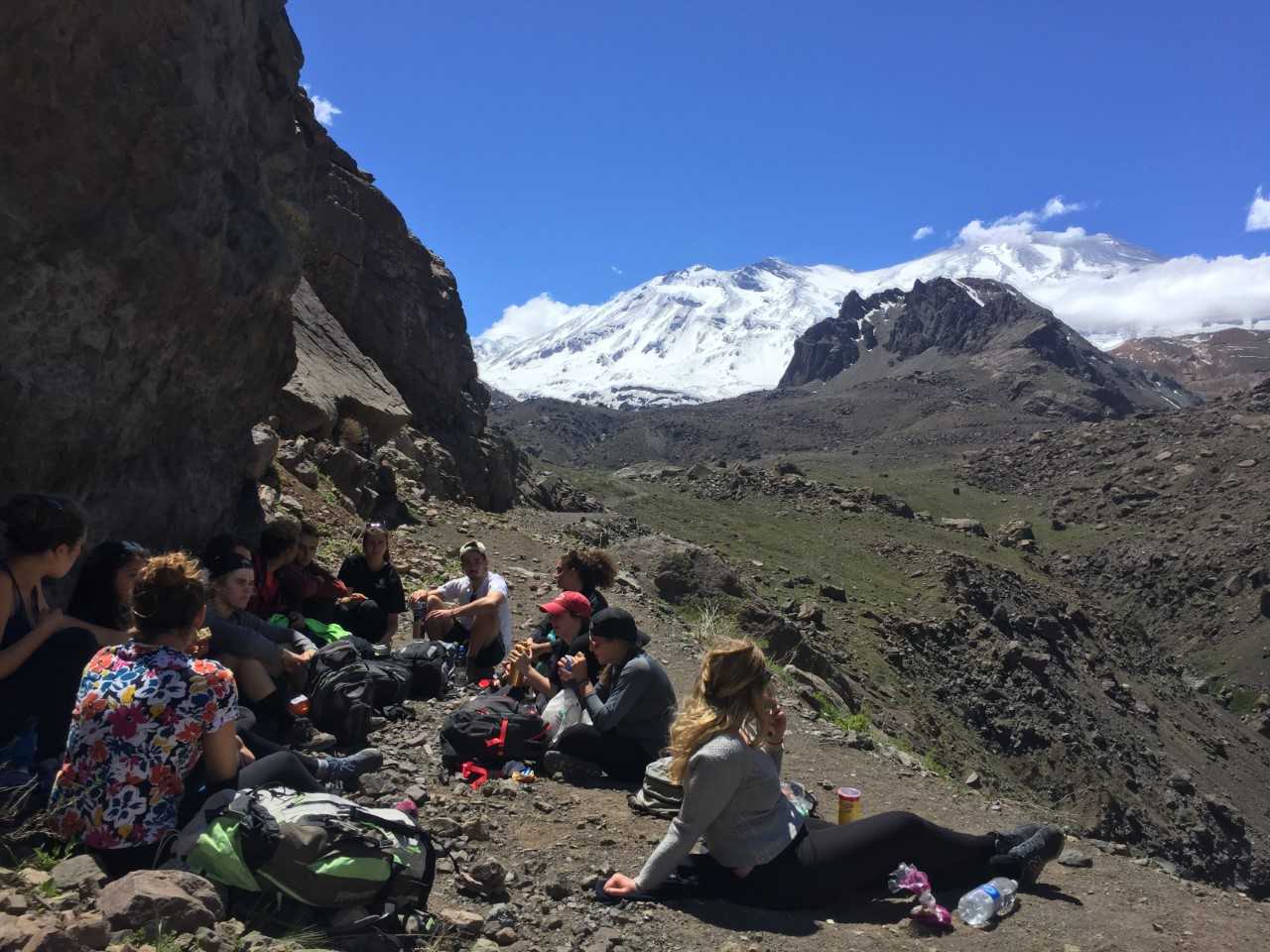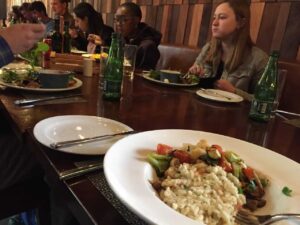Five Key Tips for Living Abroad with a Dietary Restriction



As a vegetarian, traveling has always held extra challenges for me. Would I be able to find enough food? What should I bring? Would I bother the people around me? On family vacations and class trips, I was always sure to prepare for the day or week ahead, doing my best to make sure I didn’t have to worry too much about food and I could enjoy the trip. When planning for study abroad, these worries were amplified to fit the five month timespan of my stay in Santiago, Chile. With a host family feeding me in a new city where I didn’t know what the stores and restaurants sold, I was very worried I would either be underfed or spend way too much money.
Any prospective study abroad student with a dietary restriction is sure to share some of these same worries. Whether gluten free, lactose intolerant, or with any host of food allergies, the prospect of moving to an unfamiliar country when it can be difficult finding good meals can be daunting. Obviously, every country and region differs in how it views dietary restrictions and how available different food options will be, but across the board, there are sensible steps every student can take to ensure their time abroad is characterized by the friends and memories made, rather than food worries.
Study abroad is an experience full of ups and downs, but something as simple as food shouldn’t be a source of stress. For me, the disclaimer on the IFSA housing application did nothing to quell my fears: “A special note to vegetarians: vegetarians are poorly understood in Latin America, and they are often undernourished.” Reading this made me feel like my worries were only going to be confirmed. Going abroad, I was concerned that this lack of understanding and undernourishment would take away from an experience I had looked forward to for as long as I could remember. Study abroad has always played out in my mind as an experience full of learning, exploring and adventuring, and I didn’t want to have to limit myself due to my dietary restriction. Many of my fellow students, namely the two other vegetarians on my program with me, shared these fears, hoping their time abroad would be characterized by friends and fun, not food worries.
Living with dietary restrictions abroad, we quickly learned, is less intimidating than it can seem. Students with dietary restrictions can take many simple steps to ensure their eating experiences abroad are as seamless as possible.
Tip #1: Be specific on your application

Perhaps most importantly, be clear about your restriction on your host family application. Your host family will be your main source of meals, so making sure they completely understand what they will be working with is essential. Outline what you can and cannot eat and explain why. Be clear about how much work you are willing to put in to find food, or how accommodating you would like your host family to be.
Tip #2: Talk to IFSA staff
Another key group that will play a big part in your time abroad will be the IFSA program staff. Be sure to communicate with on-site staff beforehand about your restriction and what you can expect in your new home, ask questions about meals and places to eat, and reach out if you’re having any problems. They are always there to help, and their knowledge and expertise means they can help to make your experience a lot smoother.
Tip #3: Communicate in person
Upon arrival, take the time to talk through your restriction in person with both your host family and the staff, and see if they have any questions. Communicate clearly, with your host family especially, about what specifically you can and cannot eat, and ask about favorite recipes and meals of theirs. These conversations will help clarify what you wrote on your application and make your stay a lot smoother by answering potential future questions.
Tip #4: Find places that cater to your needs
In your free time, try to seek out places in your new city where you can find nutritious, delicious food close to you, whether that means restaurants, cafés or markets. In my experience, Santiago provided a plethora of up-and-coming restaurants and cafés in areas such as Barrio Italia and Providencia that catered to a wide variety of needs, and local ferías (street markets) always held a host of fresh, local produce. Also, don’t miss out on street food, like empanadas, sopaipillas and churros.
Tip #5: Make friends and have fun!
This may all seem stressful, but, of course, study abroad should be fun too! To make sure you don’t miss out, invite friends to some of the restaurants and markets you find. Try to find out if anyone else in your program shares your dietary restriction or has a different one and talk to them to see how their experience has been. On top of that, there are sure to be people with your dietary restriction in your host country. If any of your new friends have dietary restrictions, ask what they do, or see if they’d like to go to a restaurant or cook together. For me, a trip out to an Indian restaurant in Providencia with a group of friends provided a great opportunity to cater to my own needs while ensuring everyone had a good time. I don’t think any friend would turn down a delicious home cooked or baked meal, so bring along some recipes for a taste of home you can share with friends and your host family. If you’re going on a day trip, be sure to bring along some food so you don’t have to stress if you can’t find anything and can enjoy the experience for what it is.
Above all else, study abroad is a time for you to make the most of the world around you. With new classes, a new family, new friends and a new country, your time abroad will be a whirlwind of introductions, adventures and explorations. These tips can help you to not only live with a dietary restriction abroad but thrive in your new home.
David G. | Northwestern University | Chilean Universities Program, Santiago in Chile | 2017